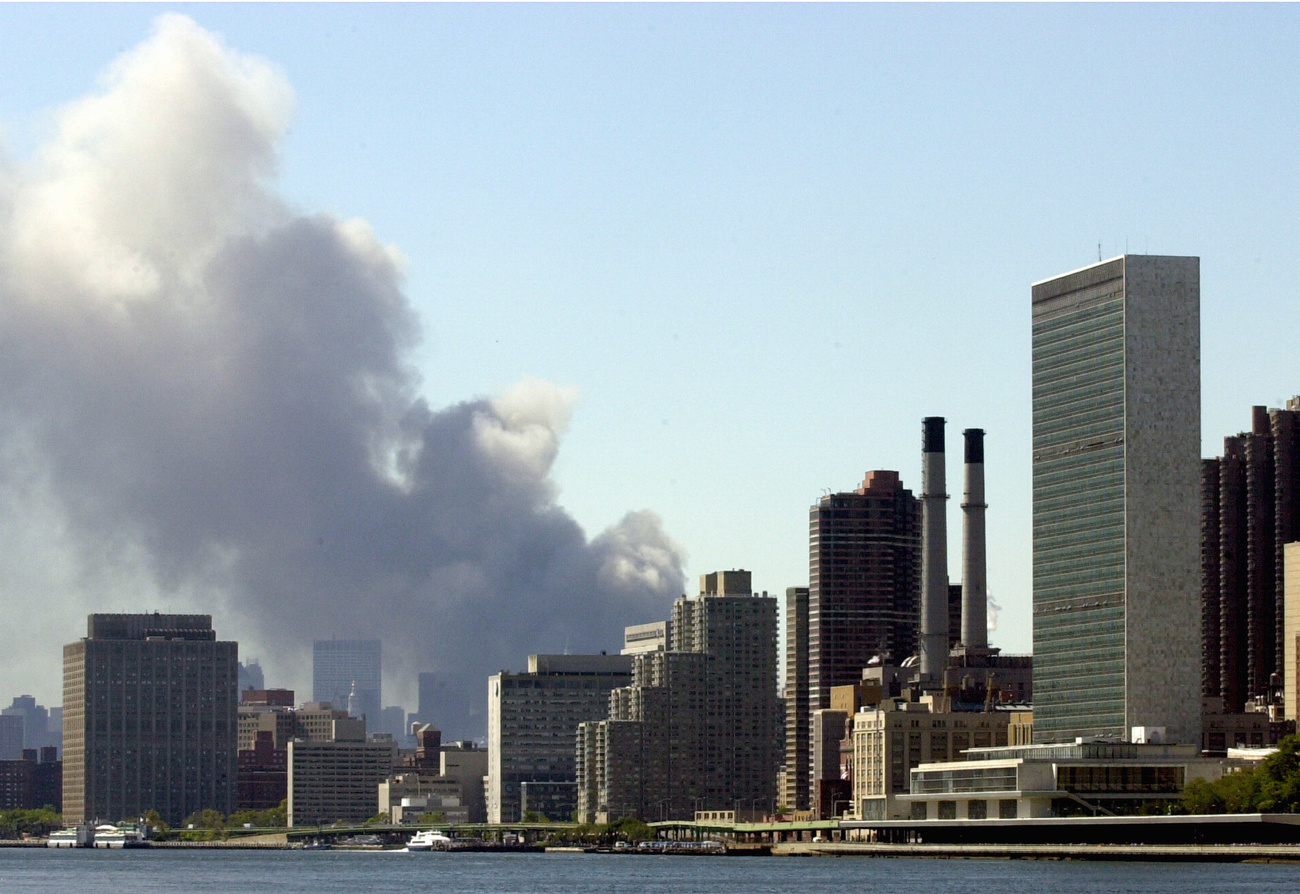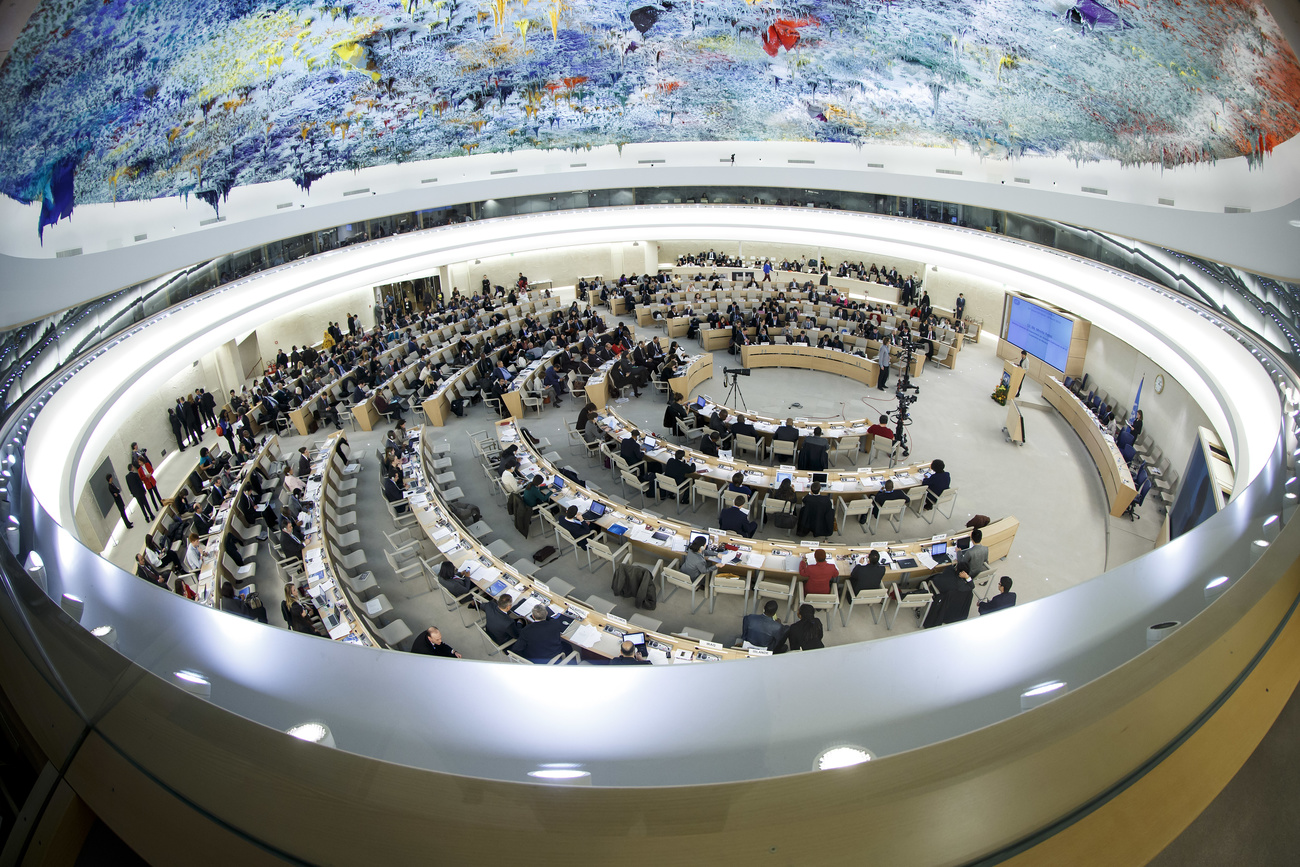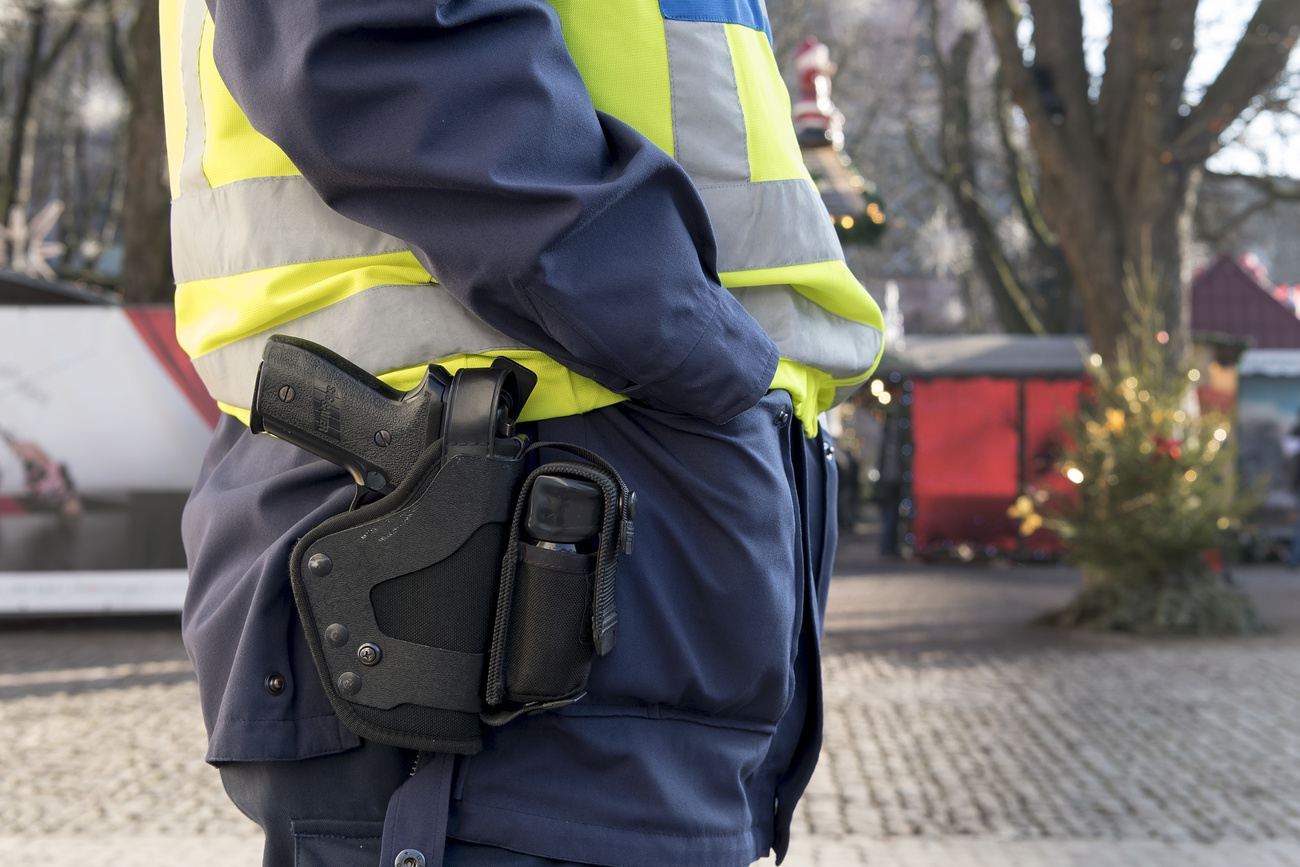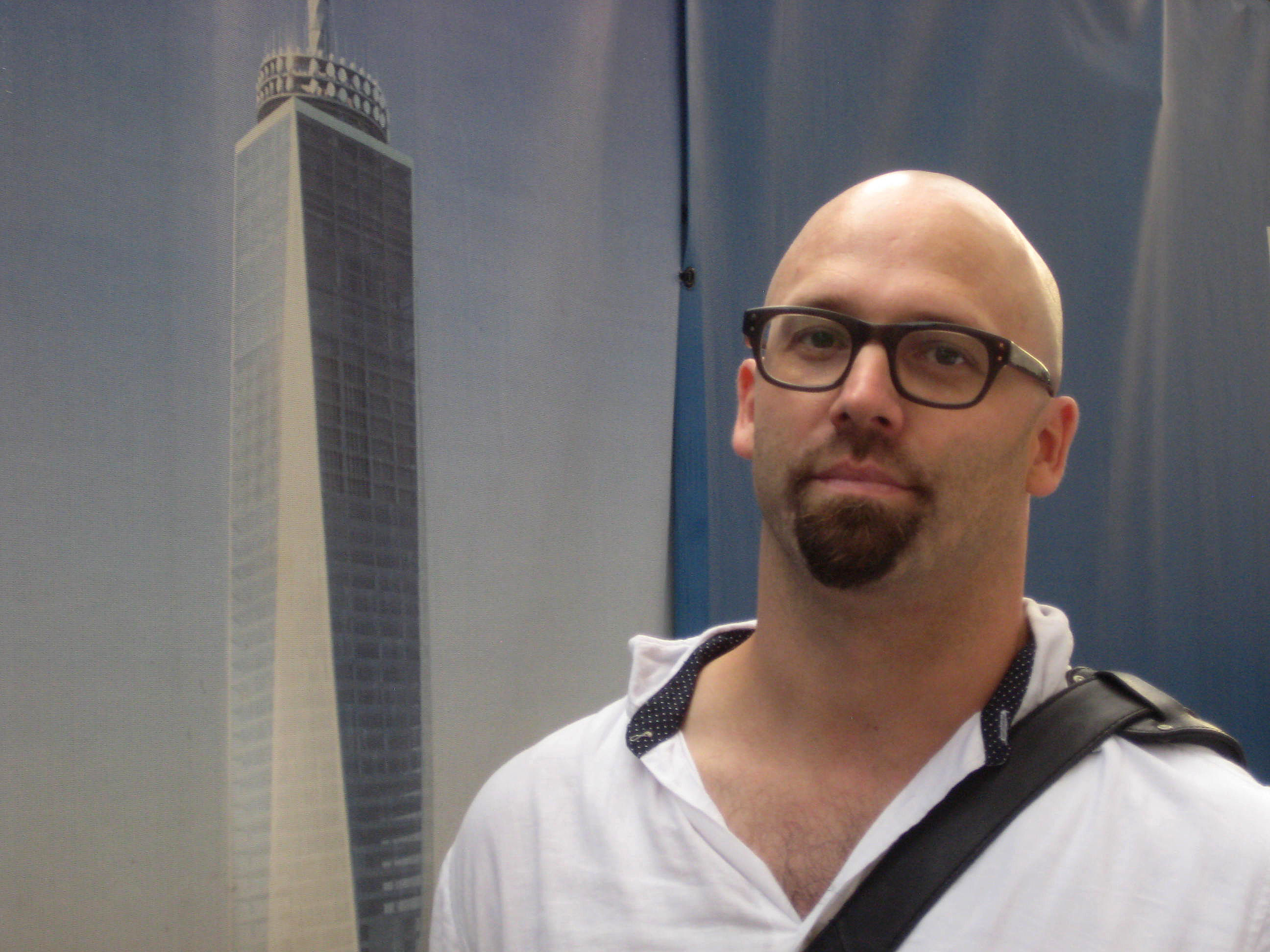How the UN has helped counter terrorism since 9/11

United Nations' efforts over the past 20 years have helped fight terrorism but also fuelled tensions on human rights, including between UN institutions in New York and Geneva.
Shortly after the attacks of September 11, 2001, the United Nations Security Council passed a Resolution declaring terrorism a threat to international peace and security and introducing binding obligations on States. Security Council Resolution 1373External link, adopted on September 28, 2001, calls on States to take a plethora of steps, including criminalising terrorism, securing borders, cracking down on terrorist financing, cooperating on cross-border law enforcement, addressing misuse of the Internet, and preventing radicalisation in prison.
CTED, a group of some 50 experts who report to the UN’s Counter-Terrorism Committee, was set up to monitor its implementation, which include conducting country visits and making recommendations.
“It was relatively easy to get an incredibly strong, powerful Resolution passed in the Security Council because, after all, the Twin Towers were virtually in sight of the UN headquarters and it happened two weeks before Heads of State were gathering in New York for the opening of the General Assembly,” says Mike Smith, an ex-UN Assistant Secretary-General and former head of its Counter-Terrorism Executive DirectorateExternal link (CTED).
The UN General Assembly, which had to convince all member States, moved much more slowly. But in 2006 it adopted by consensus the UN Global Counter-Terrorism StrategyExternal link, which has four pillars: addressing conditions that can fuel terrorism; taking steps to prevent and combat terrorism; building States’ capacity to do this; and measures to ensure respect for human rights in the fight against terrorism.
Although slower, Smith thinks the General Assembly move in 2006 was more important than Resolution 1373, because “it was adopted by consensus of 192 members, which gives it an enormous amount of credibility, and no one, no country, could turn around and say we didn’t agree. The Security Council can actually order countries to do things and the General Assembly can’t, but the General Assembly can give greater legitimacy to something by virtue of the fact that it actually represents everyone”.
Counter-terrorism and human rights
In 2005, the Geneva-based UN Human Rights Council also set up a mandate for an independent “Special Rapporteur on Promotion and Protection of Human Rights and Fundamental Freedoms while Countering Terrorism”, in response to violations of human rights in the context of the so-called “War on Terror”. This post has been occupied since 2017 by Irish lawyer Fionnuala Ní Aoláin.
She is critical of the effect the UN counter-terrorism effort has had on human rights. “What we’ve seen is the export from the United States, almost to the world through the United Nations, of the legitimisation of counter-terrorism as a discourse, the permissive space that’s been created by a series of UN Security Council resolutions that tells every State that they must have counter-terrorism legislation,” she told SWI swissinfo.ch.
She says countries like Turkey and Sri Lanka have abused this to criminalise acts protected under international law such as freedom of speech and assembly, which they then define as terrorism. “Nobody ever calls it out,” she continues, “because we have a perfect gentlemen’s agreement. And it’s a gentlemen’s agreement because it’s the boys who negotiated this amongst themselves. Nobody ever calls anyone out on their definition of terrorism.”
No definition of terrorism
Pushed notably by the US and India, the UN General Assembly sought to revitalise moribund efforts to get a common definition of terrorism in the wake of 9/11 but failed, largely because of the unresolved Israeli-Palestinian conflict and inability to move beyond the “terrorist” versus “freedom fighter” debate.
As a result, countries were allowed to define the notion themselves.
Though this flexibility has had some benefits, including allowing the UN counter-terrorism framework to develop, it has allowed countries such as Russia, China, Egypt, Turkey, the Philippines and others to apply counter-terrorism measures that have the UN seal of approval against groups and individuals that no one else would consider a terrorist.
“It’s created space for authoritarian regimes to abuse the counter-terrorism framework of the UN,” says Eric Rosand, a Senior Associate Fellow at the Royal United Services Institute in London and former senior US State Department counter-terrorism official. “Twenty years after 9/11, it’s one of the real concerns I have about the credibility of the whole UN regime, that is, how can you prevent countries from misapplying it against civil society, female drivers in Saudi Arabia, or journalists, and that risks undermining all the good things the UN has done when it comes to counter-terrorism over the past two decades.”
He thinks this is a key issue for the UN to deal with in coming years because “the lack of a definition continues to slowly erode the UN’s credibility on this agenda”.
New York-Geneva tension
Smith admits there have been tensions between the UN’s political and counter-terrorism arms in New York and its humanitarian and human rights agencies in Geneva. As head of the CTED from 2006 to 2013, he tried to push for constant dialogue with the different agencies in Geneva.
For example, if CTED did a mission to a country and thought there was a human rights problem there, they would try to get someone from the Office of the High Commissioner for Human Rights (OHCHR) to join the delegation. Smith says the CTED also worked closely at senior level with the UN refugee agency UNHCR.
“We had a dialogue on the particular challenges of terrorist groups operating within refugee communities, and at one stage we worked very hard to bring UNHCR and Interpol together to share information in this very tricky area. Interpol had information on individuals who were connected with terrorist organisations that UNHCR didn’t have. And UNHCR was trying to manage these camps with these groups operating within them.”
Rosand says he thinks the tension is not so much between the UN agencies themselves as between their agendas. The UN Global Counter-Terrorism Coordination CompactExternal link brings together some 40 UN agencies and is an advance on even ten years ago, “when it was very difficult for some UN humanitarian and human rights bodies to even be in the same room with a sign that said counter-terrorism”, he says.
Now UN agencies are talking and looking for ways to collaborate, “but the agendas, the frameworks, Resolutions or UN reports that are guiding their activities are often in contradiction”. He says UN counter-terrorism officials will not criticise countries like China, Egypt and the Philippines for human rights violations committed in the name of counter-terrorism, whereas senior officials at the OHCHR and the Special Rapporteurs will.
“But that doesn’t carry nearly as much weight,” he told SWI swissinfo.ch. “These countries are much more inclined to listen to UN counter-terrorism people than these human rights officials.”
More
Keeping up with the times
“I think in the beginning, right after 9/11, the multilateral counter-terrorism playing field was largely barren, and so the Security Council had a critical role to play in internationalising the fight against terrorism,” says Rosand.
But he thinks there is another major challenge for the UN Security Council, which seems too remote from local actors, civil society and communities on the ground, who have no input into its Resolutions. It needs to get closer to them to have a bigger impact. “I think that’s where the Council has become a bit sort of tone deaf and not kept up with the pace of evolution in terms of how we understand the terrorist threat and counter-terrorism need, which is often very localised.”
The Afghan connection
It is ironic, to say the least, that as we mark the 20th anniversary of the 9/11 attacks that triggered a US-led war in Afghanistan to drive out the terrorist-harbouring Taliban, the Taliban have returned to power in that country. Has it all been a failure?
“There’s a lot of very interesting analysis of how bad the [US] decision to cut and run was, or whether in fact the forces there should have pulled out ten years earlier,” says Smith. “You can argue these things, but the reality is that the intervention in Afghanistan did very seriously reduce Al-Qaeda’s capacity to attack.” He points to concern that the Taliban’s return could give Islamists around the world heart and reactivate their activities. But, he says that if this happens, countries are more prepared than in 2001 to respond to terrorist attacks.
“I don’t think what just happened [in Afghanistan] means that all our counter-terrorism work has been a waste. Absolutely not”.

More
Post 9/11: When the world became a ‘human rights free zone’

In compliance with the JTI standards
More: SWI swissinfo.ch certified by the Journalism Trust Initiative














You can find an overview of ongoing debates with our journalists here . Please join us!
If you want to start a conversation about a topic raised in this article or want to report factual errors, email us at english@swissinfo.ch.